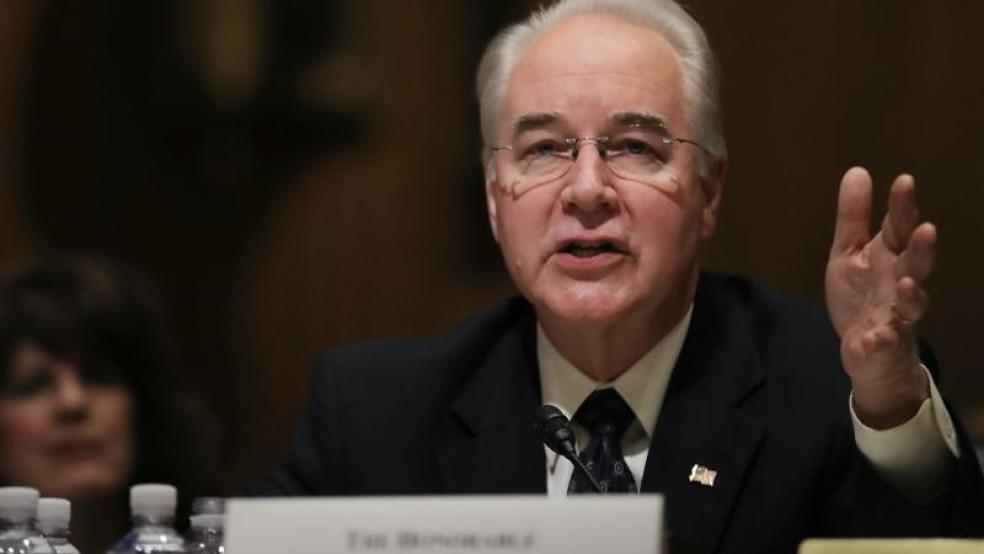In the wake of the collapse of the Republicans’ seven-year effort to repeal and replace the Affordable Care Act, a major question is whether a vengeful President Trump will make good on his threat to undermine Obamacare on his own or reluctantly agree to measures to shore up the troubled market.
On Saturday, Trump lambasted Senate Republicans for looking “like fools” in failing to pass a last-gasp “skinny repeal” plan, and he insisted that Majority Leader Mitch McConnell (R-KY) continue to press for passage of a bill to overhaul the ACA.
Related: Where Does Obamacare Go From Here? 3 Scenarios for Health Care Reform
Trump and House Speaker Paul Ryan (R-WI) have long contended that Obamacare was in a “death spiral” because of soaring premiums and copayments, shrinking markets and reduced choices for consumers. And in a barrage of angry tweets since Sen. John McCain of Arizona and two other Republicans blocked passage of the bill early Friday morning, Trump reiterated his vow to “let Obamacare implode.”
On Sunday, Health and Human Services Secretary Tom Price, the administration’s chief architect of a health care reform strategy, signaled that the administration would continue to step up efforts internally to try to bring the jittery Obamacare market to its knees even without legislation.
Price said that a major goal is dropping the individual mandate requiring all uninsured people to purchase coverage through Obamacare exchanges. That was one of the key provisions of the Republican “skinny repeal” bill that went down to defeat in the Senate early Friday morning.
The ACA currently requires uninsured Americans to purchase health insurance or pay a tax penalty. However, the IRS -- under orders from Trump -- has already taken steps to curtail enforcement of the individual mandate and could do more to render the mandate useless.
Related: How Trump Could Still Win the Health Care Fight
“The individual mandate is one of those things that is actually driving up the cost for the American people in terms of coverage,” Price said during an appearance on ABC’s This Week. “So, what we’re trying to do is make it so that Obamacare is no longer harming the patients of this land – no longer driving up costs, no longer making it so that they’ve got coverage but no care.”
However, Price repeatedly dodged questions about whether Trump will make good on his threat to discontinue funding to reimburse insurance companies for reducing or waiving deductibles and copayment for low-income policy holders.
Trump tweeted Saturday that if a new Republican health care bill is not approved quickly “bailouts for insurance companies and bailouts for members of Congress will end very soon.”
The government currently spends $7 billion annually on these so-called cost-sharing subsidies and likely will spend $10 billion next year if the subsidies are continued. The Trump administration has threatened to call a halt to the payments, which currently are being made on a month-to-month basis.
Related: The Health Care Fight Isn't Over, Despite Democratic Cheering
Asked by ABC’s Martha Raddatz how soon HHS would discontinue the cost-sharing subsidies for insurers, Price replied, “Well, no decision has been made, and I’m not able to comment anymore because it’s a court case.”
House Republicans sued the Obama administration, challenging the legality of making the cost-sharing reduction payments without a specific appropriation. A U.S. district court judge has ruled in favor of the House, but the ruling was appealed by the Obama administration, and the payments were permitted to continue pending an appeal. Price, the new HHS secretary, must decide whether to continue the appeal or drop it.
If the subsidy is discontinued, the Kaiser Family Foundation has estimated that premiums go up nearly 20 percent in the coming year. That would likely mean that many low and moderate income people would be forced to drop their policies, while many more insurers might decide to abandon the Obamacare market.
Senate Minority Leader Chuck Schumer (D-NY) and House Minority Leader Nancy Pelosi have said that the Democrats would be open to a compromise with the administration and Republicans on a small package of measures to “fix” Obamacare and restore more stability to the program, including guaranteeing continued funding of the cost-sharing subsidies.
Related: ‘Skinny Repeal’ Takes Center Stage, but May Find Little Love in Senate
Another measure favored by the Democrats and health care industry officials is the revival of a “reinsurance” program in which the government helps defray insurers’ costs of paying for the coverage of their sickest, most expensive customers. This is especially important in areas where there are not enough younger, healthier customers to offset the cost of older and sicker individuals.
The Trump administration has already taken steps to weaken Obamacare while Congress debated legislation, including using federal funds originally meant to promote enrollment to produce online videos highly critical of the program.
Price said that the individual mandate and cost-sharing subsidies are among more than 1,400 regulations and provisions related to Obamacare and the health care system that are under review by his department to bring health care policy more in line with Trump’s views.
Related: What a Waste—Senate Health Care Debate Squanders Time and Millions for Nothing
“All things are on the table to try to help patients,” Price said. “Again, what we’re trying to do is to make it a health care system that responds to the needs of the American people. And when the federal government gets in the way of responding to those needs, then it’s incumbent upon us as policy makers to put in place a system that actually works for the American people.”
Price brushed off Trump's remark last week that he might be fired if the Republicans failed to pass repeal and replacement legislation. “Oh, I think that statement was a humorous comment that the president made, but I think what it highlighted is the seriousness with which he takes this issue,” Price told Raddatz.





